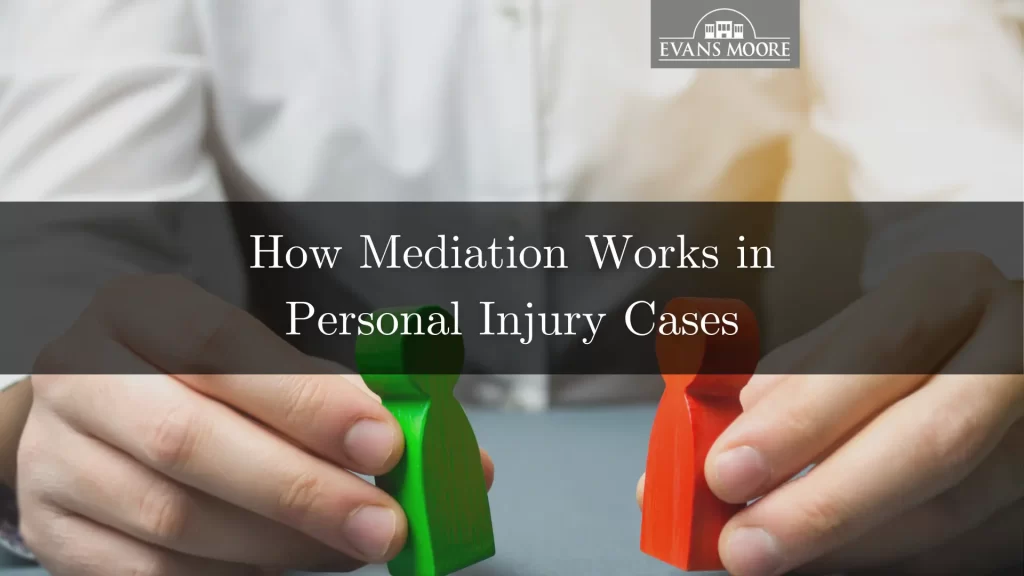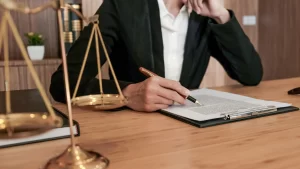
Learning how mediation works is vital if you are facing a personal injury claim in South Carolina. In the mediation process, the participants can negotiate an agreement with the help of a neutral third party called a mediator. Because mediation avoids court proceedings, which are time-consuming and costly, it has become a popular alternative to going to court. In addition, by using mediation, the parties can directly influence their case’s outcome.
Why Should You Consider Mediation?
Mediation can be an efficient way to resolve a personal injury claim. It allows all parties to address their respective concerns and learn about what’s most important to the other side. Mediation occurs in a less formal environment than a trial, and the mediator is charged with helping to maintain a non-threatening, amicable atmosphere to facilitate negotiations.
Collaborating in a dispute can help provide a positive outcome. As the parties interact, they begin to understand the other side’s perspective. This is more likely in mediation than in court. Mediation sessions also protect the privacy of both individuals involved because the parties must sign a confidentiality agreement, and any information shared in the session stays confidential.
The Role of Your Personal Injury Lawyer in Mediation
Mediation is a two-way process; your lawyer will be your advocate. Although a lawyer’s presence during mediation is not mandatory, if you have one, you should bring them. Your lawyer will work to achieve your goals and meet your needs during mediation. In addition to protecting your best interests, they can review any offer the other side presents and advise you about whether accepting or refusing it is in your best interest.
The role of a personal injury lawyer in mediation is to guide you throughout the process. You can express your concerns and ask questions because they are well-versed in mediation. Because of this, you can make practical, informed decisions during negotiations. They can suggest strategies that might cause the other side to compromise on issues that are important to you.
Your lawyer’s job is to secure the evidence supporting your claim when preparing your case. Documents your lawyer may gather include your medical records, witness statements, evidence found at the scene, and photos. This evidence can be used during mediation to support the compensation you deserve.
Once you agree with the other party about a settlement amount, your lawyer reviews the agreement, ensuring it protects your interests and upholds your rights. They also determine if the settlement is reasonable and fair.
What to Expect in Mediation
 Knowing more about the mediation process can allow you to prepare for what lies ahead. Although cases differ, you can generally expect the following:
Knowing more about the mediation process can allow you to prepare for what lies ahead. Although cases differ, you can generally expect the following:
- Selecting a Neutral Mediator: For the discussions between two parties to be successful, it is necessary to select a neutral mediator. A mediator is an impartial third party with training who does not favor either side. Many mediators are retired lawyers or judges. The parties must agree on the choice of mediator.
- Opening Statements: Each party or their lawyer can describe their case and provide evidence in an opening statement. A good opening statement is a way to apprise the mediator of the validity of your case.
- Meeting With Each Party: After the initial session, where the opening arguments are made, the mediator may hold separate meetings with each party to better understand their concerns and needs. They cannot discuss what was said with the other party – it is confidential.
- Negotiations: As the mediator guides both parties in discussions and negotiations, the aim is to reach a resolution everyone can agree to. Reaching an agreement may require the mediator to engage in numerous back-and-forth sessions between the parties.
- Reaching an Agreement: Once an agreement is reached, the mediator or one of the lawyers will draft an agreement outlining the settlement terms.
Mediation is a voluntary process, which means either party can end negotiations at any time. Nothing discussed or negotiated can be presented in court if the process fails.
Reaching a Settlement
Reaching a settlement is hard work. Refraining from becoming argumentative or blaming the other party openly is not easy. After taking stock of their injuries, many people want to say how their life is in shambles, and it is not their fault. Essentially, this is the opposite of how to behave in a mediation session. Instead, follow these steps:
- Listen: the most important thing you can do is listen to others say. Try to understand how they felt and what led to the accident. Put yourself in their place, no matter how hard it is. Empathy helps mediation be successful.
- Be Respectful: Do not make snide remarks or try to belittle the other side’s opening statement. The mediator may consider this to be disrespectful and think you are less reasonable than you would like them to.
- Don’t Interrupt: Let the other party or witness finish what they say. Interrupting is rude behavior.
- Acknowledge Valid Points: Sometimes, the opposition will make a valid point. Acknowledge it.
- Be Open to Possible Solutions: Flexibility is a hallmark of successful mediation. The objective is to reach a settlement, requiring both sides to compromise.
- Do Not Use Profanity: Cursing can make you look angry and difficult. Refrain from making everyone feel uncomfortable.
- Giving Up Does Not Help: Remain positive. Recognize that everyone in the mediation process wants it to work. Leaving the proceedings means you lose an opportunity to reach a compromise that can help you avoid going to court.
Considering the Mediation Alternative
Mediation is one way to resolve a personal injury case without entering litigation. Ask your lawyer if mediation might help you resolve your case. While not every case benefits from mediation, yours might. No one can force you to enter the mediation process, although in some cases, a court may order it.
If you’re considering mediation to reach a resolution in your South Carolina personal injury case, call the seasoned personal injury attorneys of Evans Moore, LLC for a free consultation. You’ll have the opportunity to discuss your case with one of our lawyers. Call (843) 995-5000 today.
Related posts